Biden’s Civilian Climate Corps Works Toward Greater Outdoor Inclusion
President Joe Biden inspires a new form of patriotism in the United States: one based on pride in our outdoor landscapes and public lands.

Out of 450 national parks, fewer than 25% celebrate or commemorate communities of color, women, or other traditionally underrepresented groups. This has often left minority groups feeling excluded in public lands.
Regenerative Travel
Kieron Wilde, Founder of First Nature Tours, has a background in ecology and sustainable tourism. “I would describe science as my religion,” said Wilde. “We are all connected and if people could understand they are one small part of this larger organism, we would be a lot closer to properly respecting each other and our environment.”
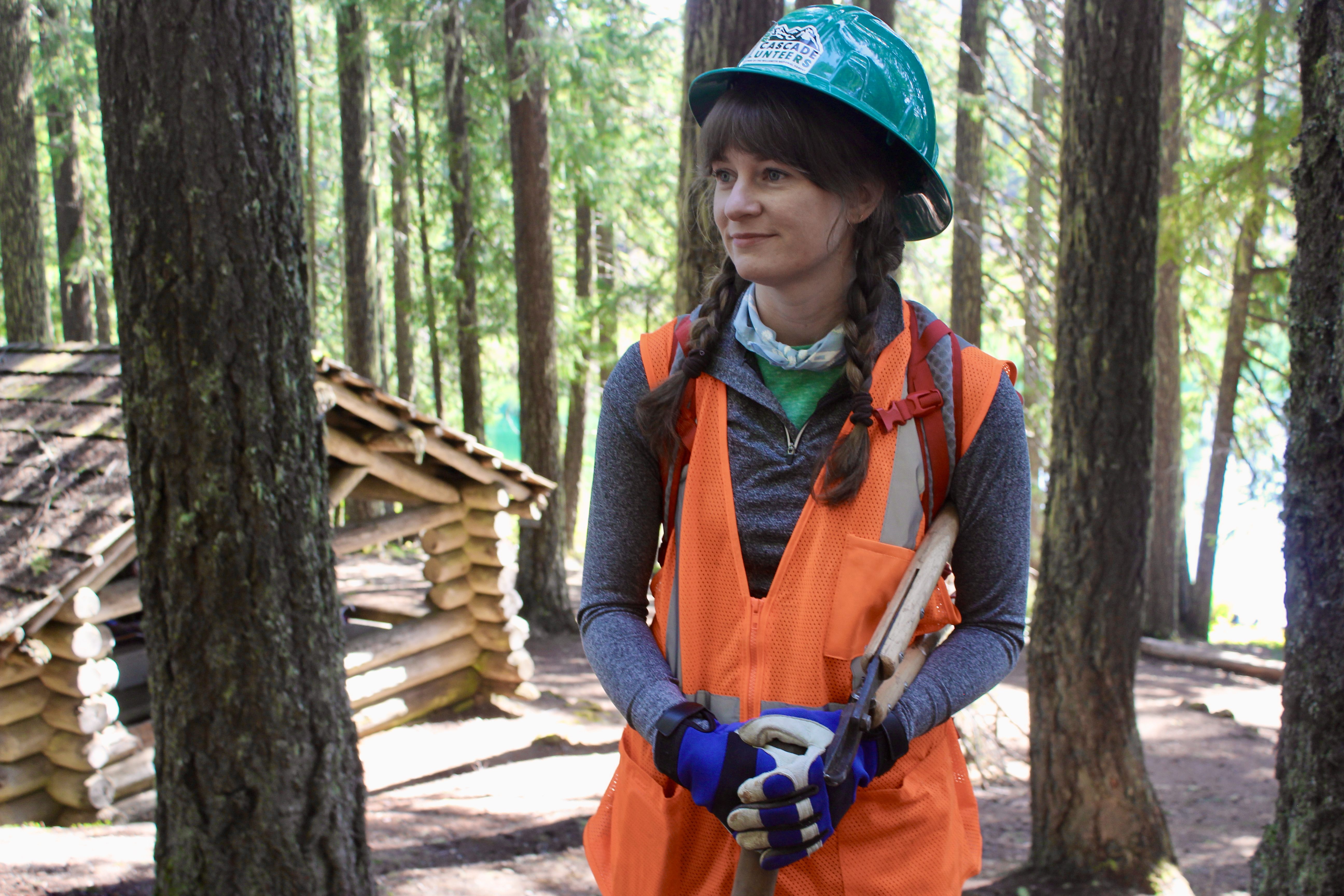
Wilde’s company leads regenerative trips in the Pacific Northwest. Regenerative trips go beyond sustainable trips and actually leave the destination better than participants found it. Itineraries include trail maintenance, forest fire rehabilitation, lessons on trail etiquette, and adventures like mountain biking and river rafting. This year they have a session entirely devoted specifically to the Latinx community.
“We will bring on a Spanish-speaking guide and make the price a little more affordable,” Wilde explains. “With regenerative travel, it’s so important to be inclusive because we want to bring as many people as possible into stewardship for the outdoors. These trips not only facilitate a love of the outdoors, but also knowledge of how to prevent environmental degradation.”
The Corporate Component
Outdoor-focused companies have joined this push for greater inclusion. Outdoor companies and media outlets have previously been criticized for seeming homogeneously white. According to the Outdoor Industry Association’s 2018 Outdoor Participation Report, white people get outside an average of 76 times per year, a number trumped by both African-Americans (86) and Hispanics (87). Only Asians get outside less (74). Native Americans were not mentioned in the report. However, public perception and marketing campaigns showcase white people outdoors disproportionately often.
“If you don’t see yourself within magazines, marketing, or in-store materials, then you don’t think something is for you,” explained Yanira Castro, communications director for the nationwide African-American advocacy nonprofit Outdoor Afro in an interview with Footwear News.
This is starting to change with companies like The North Face. Within The North Face itself, 55% of the employees are BIPOC (Black, Indigenous, and or People of Color). The North Face’s recently launched Explore Fund will now commit $7 million to add new, diverse voices and perspectives to the outdoor community through a number of U.S. and European non-profits organizations. The council is co-led by Jimmy Chin, an American climber of Taiwanese descent, most famous for his 2019 Academy Award for codirecting the documentary Free Solo, and Lena Waithe, a Black award-winning actress who constantly champions underrepresented groups.
“The outdoors is such a great space for people from different backgrounds, races, and religions to come together and interact as human beings,” Chin said in an interview with Outside Magazine. “To find those places of intersection and connection is something that I’ve been able to experience, and I want to share that.” Another pivotal aspect of the fund is encouraging other companies like Arc’teryx and REI to partake. The next step: federal funding.
Federal Funding
Biden announced an executive order on January 27 to do just that. Section 215 of his Infrastructure Plan outlines his agenda to create a Civilian Climate Corp. It would be a task force dedicated to mobilizing the next generation of conservationists by creating jobs that restore public lands and waters, increase reforestation and carbon sequestering in agriculture, protect biodiversity, and ultimately aim to address the changing climate. Biden hopes to increase funding to $40 billion by passing the bill through Congress.
Biden’s climate conservation agenda has a CCC that resembles its predecessor - the Civilian Conservation Corp created under President Franklin Roosevelt - except in one important way: women and minority inclusion. In 1933 the CCC only allowed men and segregated them according to race. Now, Biden’s CCC aims for diverse inclusion in both race and gender.
The Landscape of Racial Exclusion in the Outdoors
“I was aware of the fact that I didn’t look like the others in the campground or on hiking trails,” wrote Ambreen Tariq, the founder of Brown People Camping, in She Explores, “but I didn’t dare wonder why. As new immigrants, we often accepted facts as they were presented to us.”
Judith Sadora, a licensed therapist with Triune Health and Wellness and Therapy for Black Girls, explained the racial barriers to inclusion and how to start knocking them down. “It first begins with addressing and processing historical generational trauma related to oppression inflicted on communities.” Not only do people of color need different essentials in the wilderness, like hygiene products for their hair and bandaids that match their skin, but they could also have generational discomfort with the outdoors, associating it more closely with homelessness and oppression than exploration and adventure.
Additionally, immigrants may have complicated relationships with National Parks, feeling the land is not public to them. Particularly, National Parks along the US-Mexico border have been a source of tension as Customs and Border Protection impede on protected lands, Mexican heritage, and Indigenous reservations. These National Parks along the border have been compared to war zones as there is hefty surveillance looking for illegal border crossers. There are often multiple immigration checkpoints. All these factors could easily leave immigrants, with or without proper documentation, feeling unwelcome in National Parks.
Last fourth of July, former President Donald Trump held his celebration at Mount Rushmore, to him an obvious sign of patriotism. However, the Lakota people, Native Americans in the area, protested the fireworks that could ignite dangerous wildfires in the area. Additionally, many Americans feel that George Washington, Thomas Jefferson, Abraham Lincoln and Theodore Roosevelt, all white men, the majority of whom were slave owners, are not inclusive patriotic symbols.

John Muir, a commonly referenced outdoorsman, was previously heralded as a protector of the West Coast wilderness, founding the Sierra Club and even becoming the namesake for the famous and breathtaking long-distance trail, the John Muir Trail, in the Sierra Nevada mountain range of California, passing through Yosemite, Kings Canyon, and Sequoia National Parks.
However, he was not protecting nature for the benefit of indigenous populations, but instead described them as dirty and believed their villages in the mountains were a disruption to nature’s beauty. The Sierra Club has since grappled with removing his name from monuments much like civil war status honoring confederate generals. Muir is just one example of many of how minority groups have often been excluded from mainstream patriotism and American pride.
However, there is a possibility for a new form of patriotism that brings people together in shared stewardship for our public lands. The United States, as the third-largest geographical country, has so much outdoors to offer. Biden’s plan to create jobs that plant this seed of pride and patriotism for public lands and the environment could offer refuge for both the climate and the country. While details of how the plan will operate are still up in the air, the program will most likely be built into existing infrastructure, for example, the California Conservation Corps.
California Conservation Corps
The California Conservation Corps (another CCC) works with young people, around ages 18-35, to restore wilderness habitats and eliminate unnecessary waste. The CCC is divided into crews like the Natural Resource Crew that works on fire prevention, invasive species control, energy efficiency, public works and community safety, vegetation management, and storm preparation. The Zero Waste Crew collects e-waste, recycles and collects used tires, mattresses, etc. These jobs are often for a period of about 10 months, living on-site, receiving low wages but providing you with work certificates and high school diplomas if necessary.
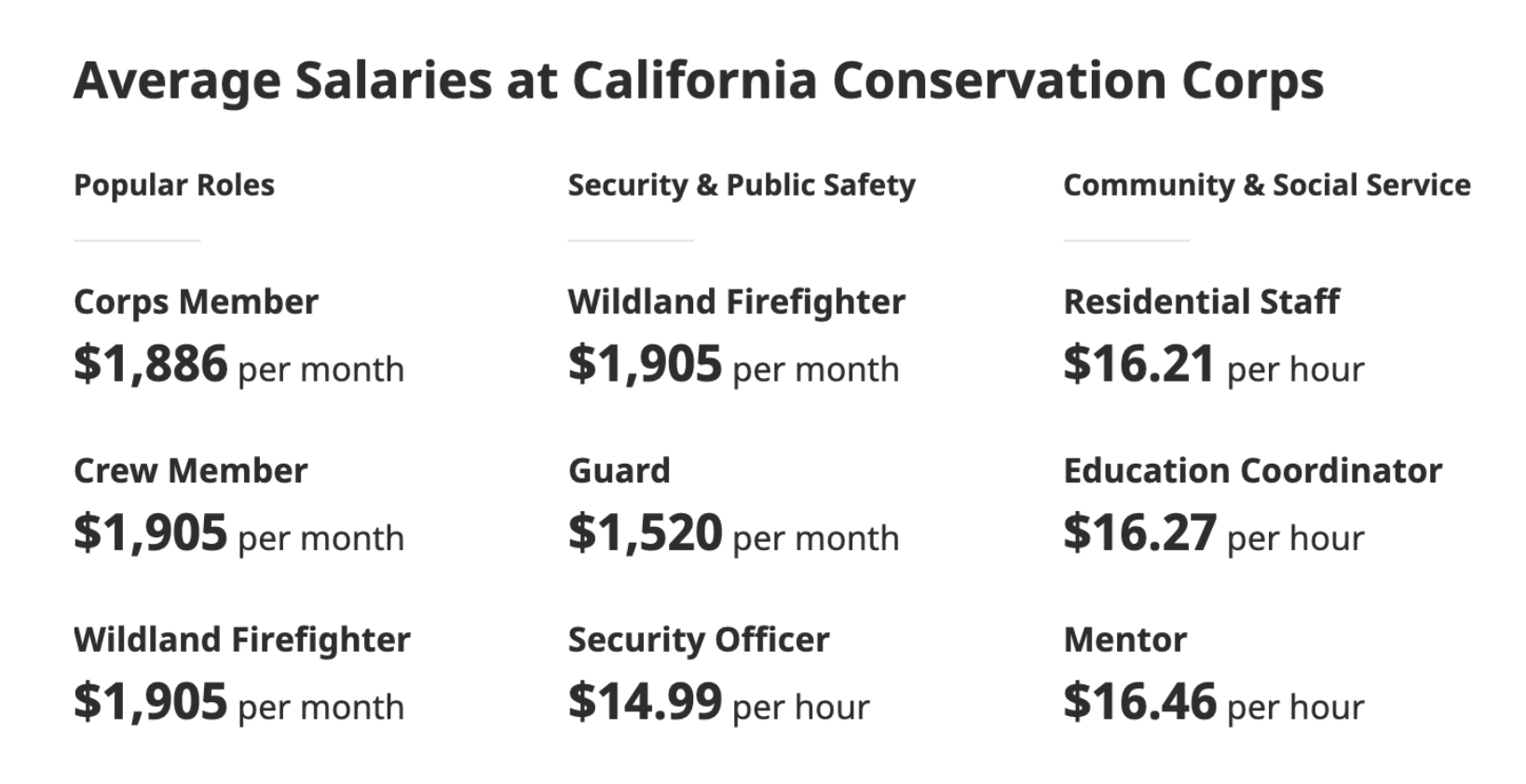
The CCC’s low wages are a hindrance to total outdoor inclusion. Typically, only the more privileged people can afford to make a low wage in exchange for meaningful work in outdoor conservation. Biden’s plan provides more robust funding to allow for greater accessibility of the program to reach his aforementioned goal of diversity.
Another tool the CCC uses is single-identity crews. While the majority of the crews use the traditional, fully integrated model, there are also crews that only have for example women or Native Americans, or deaf peoples. This could seem like a return to Great Depression-era segregation, however, the goal is inclusion.
Single-identity crews “seek to dismantle systems of injustice that have been embedded within the environmentalism movement,” write Jordan Katcher in her master's work “Single Identity-Based Crews Toolkit: Examining How Conservation Corps are Integrating Identity into Traditional Crew Experiences.” “They seek to uplift, empower, and support underrepresented groups by creating safe, inclusive spaces that equitably give them resources that have not traditionally been given to them before.”

Racial inclusion in outdoor work can engage students not inspired by classroom learning. The experience and certificates CCC participants receive open doors to a host of new career options outside academia. According to the National Center for Educational Statistics, high school dropout rates are highest among Hispanic, Black, and Native American students. These are students who could benefit from exposure to alternative career fields and developing a passion for nature conservation.
Mental Health and the Outdoors
Beyond exposure to new careers, outdoor work is beneficial for character development and mental health. In his master’s report “Hard Work, Low Pay, Miserable Conditions: The California Conservation Corps and the Young Adult Transition” on the CCC, Daniel Dempsey found that, “generated through their own conversations between fellow corps members and staff, these young adults reexamined their biases in sexism, racism, and classism and developed a more open-minded, inclusive and productive perspective of the society in which they were increasingly involved.” These revelations, not always brought out in traditional schooling, are such valuable perspectives people adopt through their difficult service work and environmental stewardship.
Michael Sanders, the field director at WinGate Wilderness Therapy, describes his process as a “gentle philosophy of how to engage with the wilderness.” Wilderness therapy takes young adults struggling with behavioral issues into nature with the assistance of trained therapists to give the youth space, time, and tools to better cope with their challenges. “If you think about your relationship with the earth, it doesn’t punish us or reward us. It just is. It allows us to experience the natural consequences of our actions.” He went on to describe the rather primitive experience teens live in for about 10 weeks, building their own lean-to shelters, managing their limited food packs, and gently walking along the earth, careful to leave as small a footprint as possible.
“Making fire is one of my favorite teachers out there,” he said, “because all wood will make fire but it’s the combination, the kind of friction, creating the ember, transferring it to a bundle of twigs, and gently caring for it, that matters. They need the fire to warm their bodies and cook their food but also to ignite their own passions. When we build camps in flash flood areas the students are literally and metaphorically learning to construct proper and appropriate boundaries for themselves. With their limited food pack they are learning to nourish themselves. When they climb mountains they learn to persevere and overcome obstacles.”
Sanders, having seen wilderness therapy firsthand in his own family and professionally every day believes that throughout the history of civilizations, people have returned to nature in troubled times because of its healing and clarifying abilities. “Religions universally teach us that we are in relation to the earth. That relationship is important to maintaining life, power, peace, and balance in the world.”
The outdoors brings a special type of balance the United States may crave: political balance. “Things get so divided politically,” Sanders said, “because conservation is normally on the left’s agenda. There is this impression that conservatives push back against conversation work. But this could just be a political divisive generalization. Because lots of Conservatives live rurally or are connected to the earth in some way - religion, spirituality, careers, hobbies. I think there is a way we could come together over this new stewardship.”
Whether you support the left or right, the earth below supports your feet. It’s time we learned to step lighter and give back. Biden’s Plan aims to do just that.
This article was updated on June 18th. 1993 was corrected to 1933.


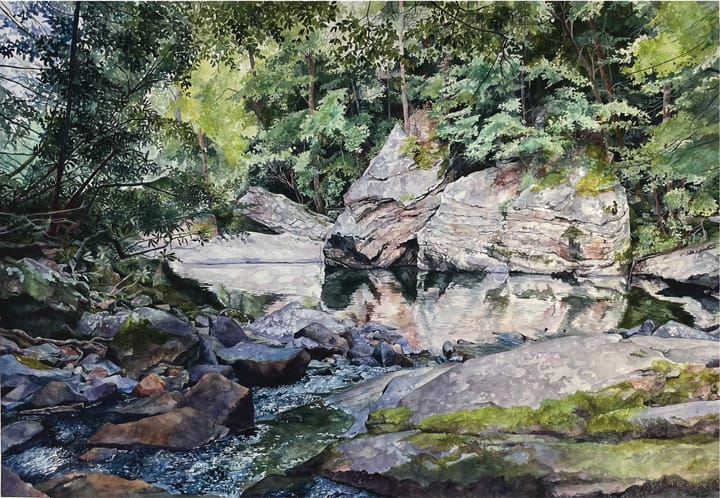
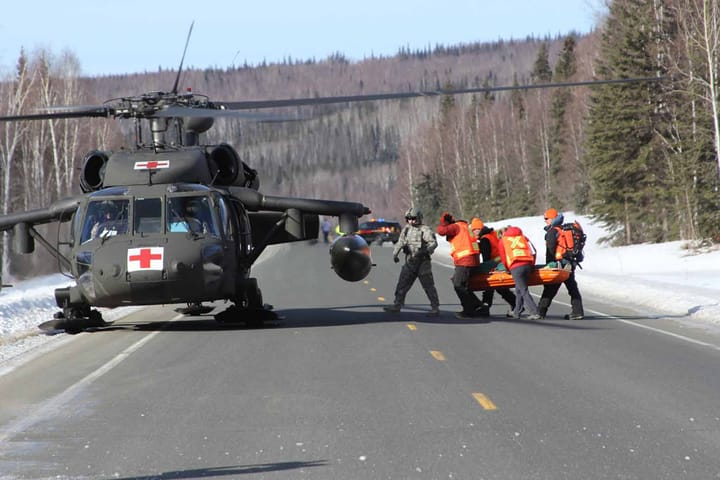
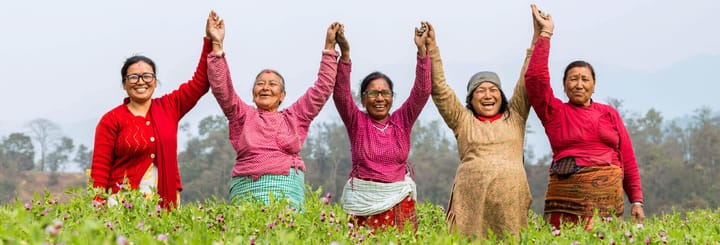
Comments ()